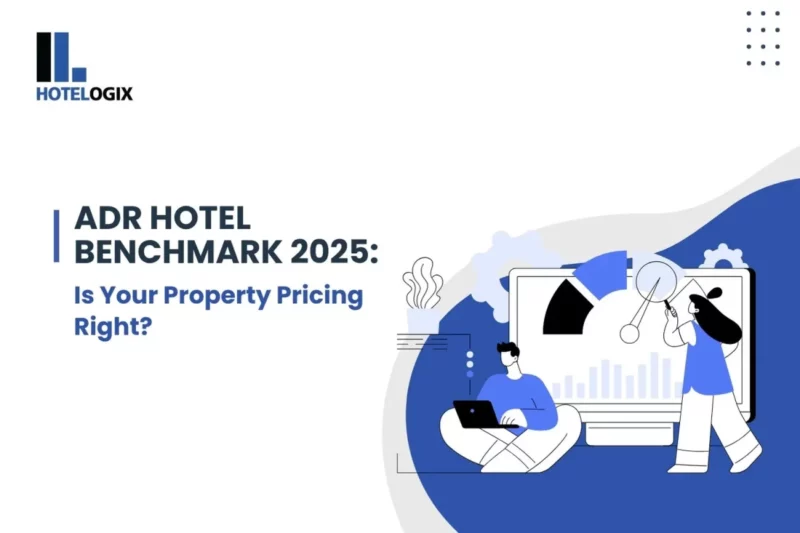
From staffing shortages and rising energy costs to the constant pressure of maintaining exceptional guest satisfaction, today’s hotel managers face plenty of challenges. With profit margins often razor-thin, even small innovations can have a significant impact. That’s why solutions that enhance productivity, reduce costs, support staff, and ultimately enrich both the guest journey and the hotel’s bottom line can be true game changers.
Thanks to reliable, more efficient hotel networks and exciting advances in smart technologies, many hoteliers are already tapping into tools that streamline operations and impress guests. From smart thermostats and automated check-in to in-room entertainment and even robotic room service, these innovations are helping hotels run more smoothly, reduce costs, and meet sustainability goals while creating more personalized, seamless guest experiences.
Unlocking the Full Potential of AI in Hotel Operations
When it comes to artificial intelligence, we’re really just scratching the surface. While AI is the hidden engine behind many of these smart tools, it is frequently embedded within siloed systems that don’t communicate with one another. They work well on their own, but without an integrated approach, hotels aren’t getting the full benefit AI can offer across the entire property. That’s where cloud-based, unified AI platforms come in and where things start to get interesting. As you might expect, it all comes down to data.
Hotels generate enormous amounts of data every day, from guest preferences and occupancy trends to energy consumption and staff workflows. By bringing all this information together in a single, cloud-based AI platform, hoteliers can see what’s happening in real time. No more relying solely on historical data or gut instinct; instead, operators can make smart, proactive decisions backed by intelligent analytics and predictive insights that improve both day-to-day operations and the guest experience.
Take energy and water management, for example, two of the biggest line items in any hotel’s budget. Smart thermostats, typically reliant on motion sensors alone, have already helped reduce energy consumption. Layered with AI, these systems go further, learning each room’s thermal characteristics to fine-tune HVAC cycles, minimize peak energy demand, and maintain guest comfort with less energy use. Similarly, AI-enabled water management systems go beyond basic leak detection. While sensors can identify even the smallest leaks, AI analyzes anomalies, pinpoints exact problem areas, and alerts maintenance teams before issues escalate — conserving water, cutting costs, and minimizing guest disruptions.
Smarter Asset and Staff Management
AI is also transforming asset management. Items like luggage carts, rollaway beds, and cribs often go missing into guest rooms or hallways, costing staff time and creating potential hazards. By equipping these assets with location tags, AI systems can track their precise locations, streamlining retrieval, reducing loss, and improving resource management to enhance operational efficiency and ensure these items are available to guests when they need them.
Staff safety and response times also benefit. Employee badges embedded with location-aware technology can double as distress alerts. A simple tap notifies front desk or security teams, while AI instantly pinpoints their location and dispatches help, enhancing both safety and efficiency.
AI as a Unifying Layer for Hotel Efficiency
Rather than relying on disconnected point solutions, more hotels are beginning to adopt integrated platforms that consolidate data from across operations into a single, cloud-based interface. These systems allow teams to monitor everything from HVAC and water usage to maintenance alerts and guest preferences in real time, creating a more proactive and efficient management approach.
One example: centralized platforms can track how many air conditioners are running simultaneously across the property and automatically optimize usage to reduce energy consumption while maintaining guest comfort. Hotels using AI-enabled thermostats have reported energy savings of up to 30 to 40 percent. These systems monitor room-level conditions, such as temperature, humidity, and occupancy, and adjust settings dynamically, even when guests are sleeping or have left their pets in the room.
Installation has become increasingly streamlined, with modern platforms designed to auto-configure across a wide range of HVAC systems. This helps minimize disruption and reduce time spent on installation, freeing up staff for higher-value tasks.
Bridging Property Systems and Guest Experience
Many of today’s AI platforms also integrate directly with leading Property Management Systems (PMS), enabling operators to tailor experiences based on guest preferences and behavior. For example, a returning guest might automatically find their preferred room temperature set upon arrival, regardless of which location they visit. These kinds of integrations can support brand consistency and strengthen loyalty programs.
As AI frameworks mature, hoteliers can expect to see even more use cases, from improved air quality monitoring to smarter resource allocation and predictive maintenance.
Preparing for a More Predictive Future
The hospitality sector is moving toward a future where automation, sustainability, and personalization are no longer separate goals but part of the same strategic toolkit. Hotels that embrace unified AI systems will be better positioned to reduce costs, streamline operations, and elevate the guest experience — all while adapting to an increasingly competitive and dynamic market.









